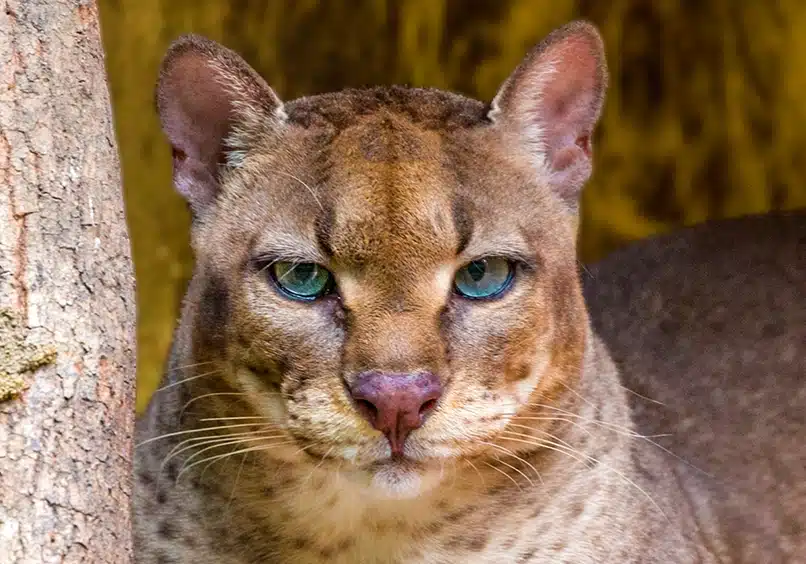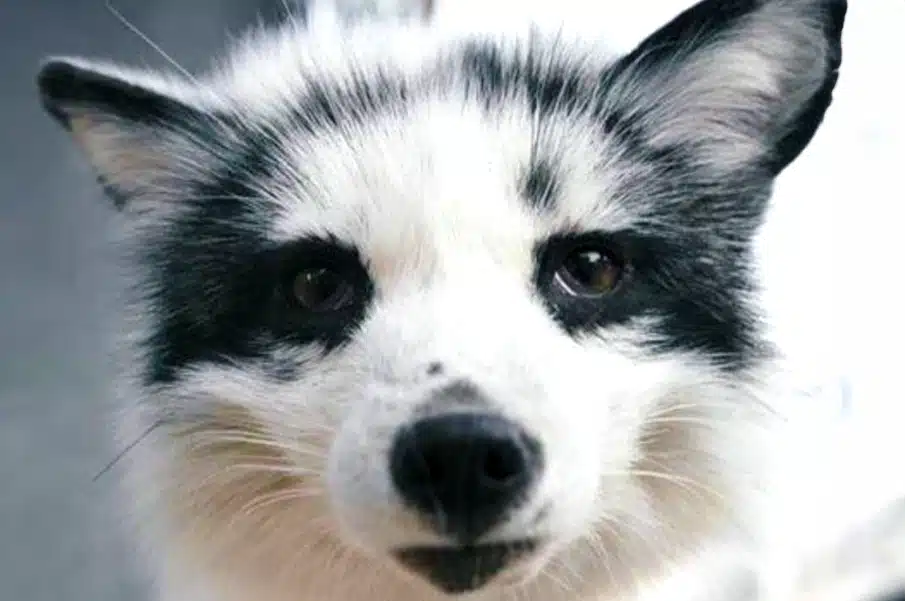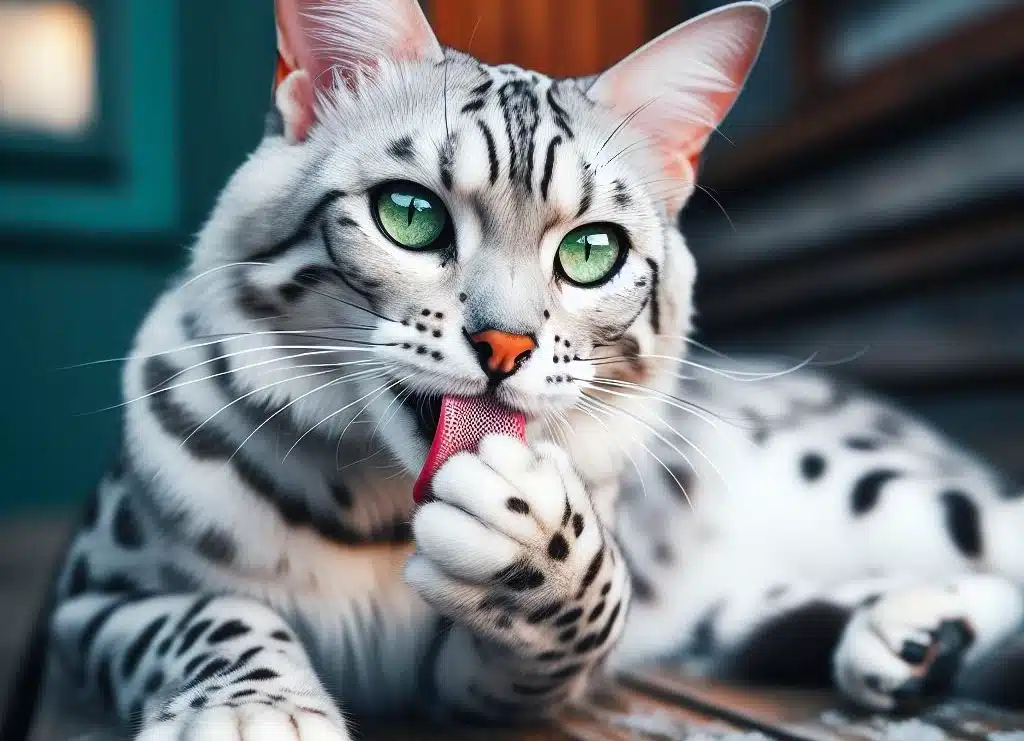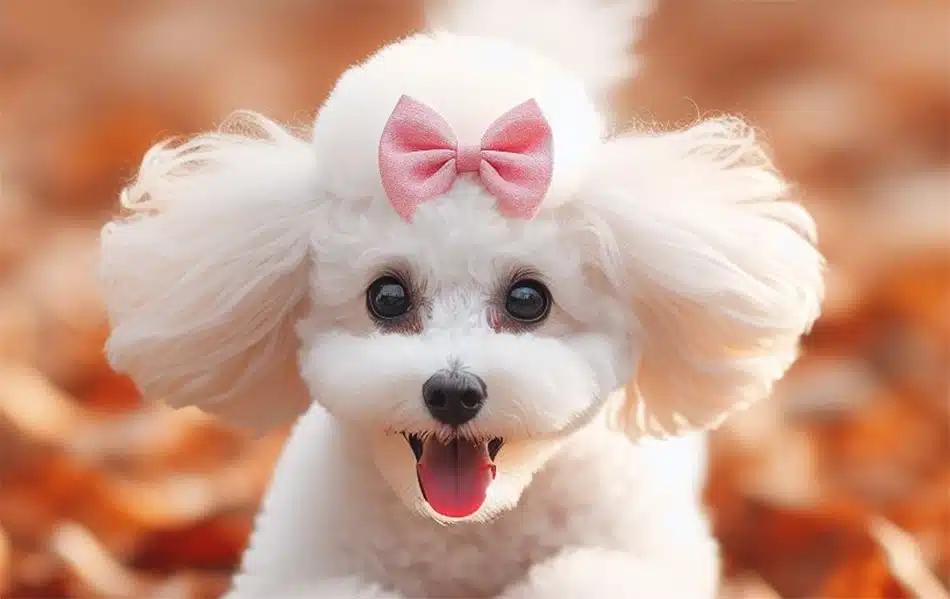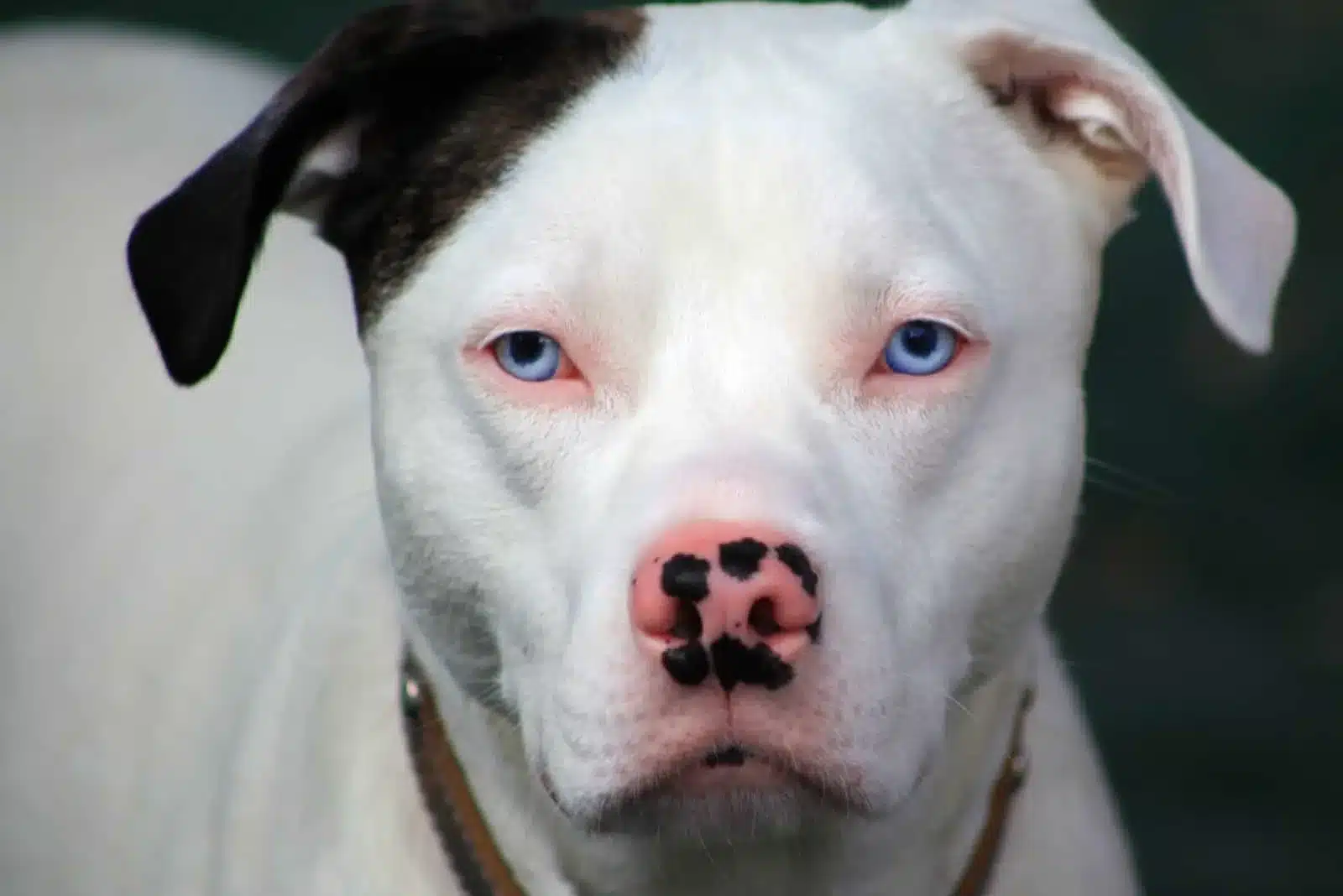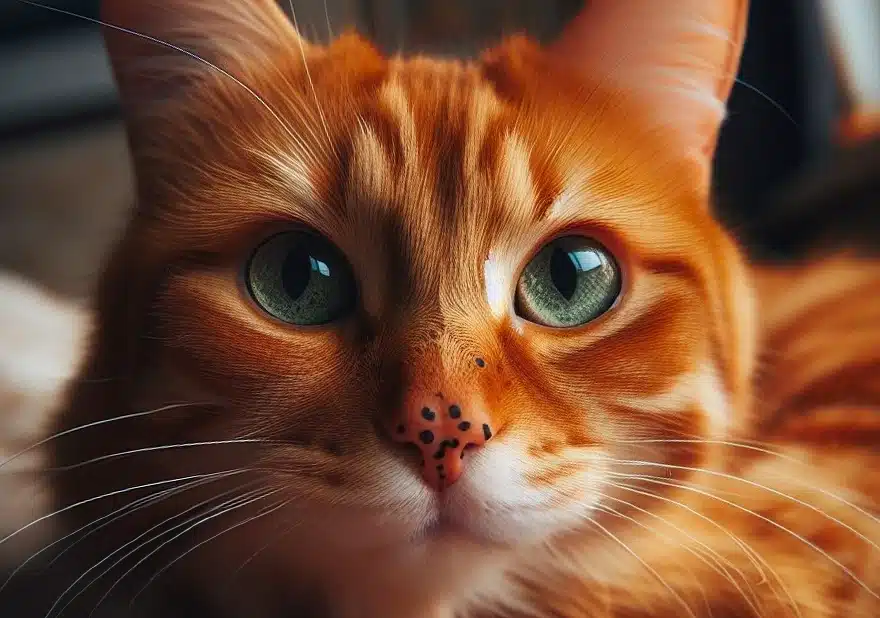Why Does My Cat Squeak? Decoding What Squeaking Noises Mean
Ads Disclosure ?
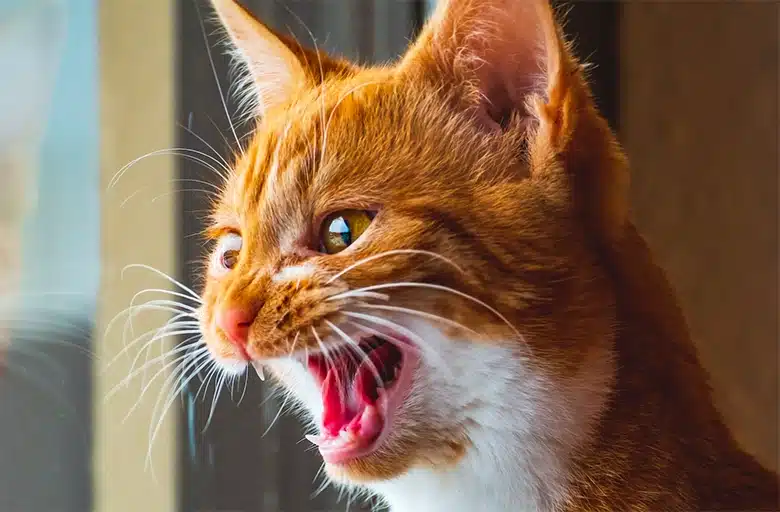
Cats are known for their vocalizations, communicating with us through purrs, meows, and even hisses. However, sometimes cat owners may notice their feline friends making a peculiar squeaking noise instead of the usual meowing. Understanding the reasons behind this distinct sound can give insight into the overall health and well-being of your pet.
Squeaking may occur due to a variety of factors including laryngitis, hunting behavior, or even mating calls. Upper airway infections such as calicivirus or rhinotracheitis can cause laryngitis in cats, leading to voice changes and squeaking sounds. Another possibility is that your cat is using this squeaking sound as a way to focus on their prey or communicate with other animals nearby, as it can occur during hunting or tracking activities.
Regardless of the cause, being attentive to your cat’s vocalizations and behavior is crucial in order to promptly identify any potential health issues or changes in their well-being. Ensure to consult with a veterinarian if you suspect any signs of illness or injury that may be contributing to your cat’s squeaking noises.
Jump To Section
The Different Types of Cat Vocalization
Cats have a diverse range of vocalizations, each conveying different messages or feelings. In this section, we will explore some common cat vocalizations such as purring, meowing, chirping, and yowling.
Purring
Purring is the most familiar cat vocalization and is usually associated with contentment and relaxation. However, cats may also purr when they are in pain or feeling anxious. Purring serves as a way for cats to self-soothe, and it can also serve as a form of communication with their owners.
Meowing
Meowing is a versatile form of communication used by cats. It can be used to convey various messages, such as hunger, attention-seeking, or even distress. As cats grow, their meows might change, and it is not uncommon for some cats to develop a unique squeaking sound instead of a meow.
Chirping
Chirping is a less common vocalization, often made by cats when observing birds or other prey. This sound is thought to be an expression of excitement or frustration, as the cat is unable to reach its target. Chirping can also be used as an attempt to communicate with other cats in the area.
Yowling
Yowling is a loud and long vocalization that cats may use to express discomfort, fear, or disorientation. Yowling can sometimes be heard during territorial disputes or mating calls. If a cat suddenly starts yowling more than usual, it may indicate a medical concern and should be addressed by a veterinarian.
Reasons for Squeaking
Attention Seeking
One possible reason for your cat’s squeaking may be its way of seeking attention. Cats are intelligent animals and quickly learn which sounds will catch their owner’s attention. A squeak might be a unique way for your cat to stand out and get noticed, especially if meowing hasn’t been successful in the past. In this case, responding to the squeak with positive attention or affection will reinforce this behavior in your cat.
Playfulness
Another explanation for your cat’s squeaks could be related to their playful nature. Sometimes, cats make a variety of noises while playing to express excitement and enjoyment. In this situation, squeaking is just another way your feline companion communicates joy and enthusiasm during playtime. To encourage this behavior and strengthen your bond with your cat, engage them in interactive play with toys or games they enjoy.
Hunger
Hunger might also be a reason your cat is squeaking. If your pet associates the squeak with being fed, it might become a vocal cue to let you know it’s mealtime. Ensuring your cat is on a regular feeding schedule and providing the appropriate amount of food based on their age, weight, and activity level can help maintain their overall health and prevent them from using squeaking as a means to signal their hunger.
Health Concerns
Respiratory Issues
Cats may squeak due to respiratory issues, such as inflammation of the throat and larynx, which can lead to laryngitis and squeaking. Inhalation damage, caused by inhaling smoke, dust, or other irritating fumes, may contribute to these problems as well. Growths or cancer of the throat can partially block the throat or put pressure on the vocal cords, causing hoarseness and vocal changes.
Anxiety and Stress
Another reason for a cat’s squeaking could be anxiety and stress. High-pitched vocalizations, such as squeaking, can be caused by excitement, fear, or pain. While meowing is the most common type of vocalization for cats, they also make other sounds, such as chirping, grunting, and squeaking. It is essential to be aware of any changes in a cat’s vocalizations or behavior, as this may indicate an underlying issue that needs attention.
With the right care and observation, cat owners can better understand their furry friends’ vocalizations and address any potential health concerns related to their cat’s squeaking.
How to Address Your Cat’s Squeaking
Creating a Comfortable Environment
It is essential to provide your cat with a comfortable and safe environment. This includes having cozy and clean sleeping areas, access to fresh water, and a clean litter box. Ensuring that your cat feels secure in their surroundings may help reduce any potential anxiety or stress that could be contributing to their squeaking behavior.
Proper Health Care
Sometimes, cats may squeak due to certain medical issues, such as upper respiratory infections, feline asthma, or vocal cord paralysis. In these cases, it is crucial to consult with your veterinarian and provide your cat with proper medical attention. Regular health check-ups can also help detect any possible issues early on and mitigate any symptoms associated with such medical conditions.
Interactive Play
Engaging in regular interactive play can help address your cat’s squeaking behavior by providing an outlet for their energy and bonding with you. Toys and games that stimulate their natural hunting instincts, such as using a feather wand or laser pointer, can keep your cat entertained and help reduce any vocalization caused by boredom or seeking attention from you.
By considering these factors and taking action to address your cat’s squeaking behavior, you can help ensure a comfortable and healthy life for your feline friend. Remember to pay close attention to any sudden changes in their vocalizations, and never hesitate to consult with a veterinarian if you suspect a medical issue.
Frequently Asked Questions
Why is my cat’s meow suddenly squeaky?
If your cat’s meow has suddenly become squeaky, there might be a few reasons. Some cats might face a temporary change in vocalizations due to illness or injury to the tissues in their mouth, throat, or larynx. A common cause is laryngitis, which is an inflammation of the voice box and could be temporary or persistent. An abrupt change in vocalization warrants a visit to the vet to rule out medical concerns.
What causes a cat to make whimpering sounds?
Cats can whimper for various reasons, including feeling scared or uncomfortable, expressing pain or discomfort, seeking attention, or even during hunting or tracking their prey. Whimpering is a form of communication, and it’s essential to determine the context and observe your cat’s behavior for a better understanding.
Can a cat’s meow change due to health issues?
Yes, a cat’s meow can change due to health issues. As cats age, their organs might gradually decline, causing changes in vocalizations. Also, illnesses such as laryngitis or other injuries to the cat’s mouth, throat, or larynx can affect their meow. It is crucial to consult with a veterinarian if there are sudden or significant changes in your cat’s meow.
Is it normal for cats to make different noises when interacting with other cats?
Cats do make different noises when interacting with other cats. Their vocalizations can include purrs, trills, chirps, and squeaks. Each sound can have a specific meaning in various contexts, and cats may change their vocalizations based on their social interactions and emotional states.
Why does my cat make a vibrating noise while breathing?
If your cat makes a vibrating noise while breathing, it is likely purring. Purring is a natural and common behavior in cats, but it may indicate different things depending on the situation. Cats purr when they are happy, relaxed, or even when they are in pain or feeling distressed. However, if the vibrating noise seems abnormal or is accompanied by respiratory issues, consult a veterinarian to ensure your cat is not experiencing a health problem.
Could my cat’s squeaking noise be related to stress or anxiety?
It’s possible that your cat’s squeaking noise could be related to stress or anxiety. Cats might change their vocalizations in response to their emotional state, and squeaking could be one way of expressing those feelings. It’s essential to monitor your cat closely and identify any potential sources of stress or anxiety to address them appropriately.

